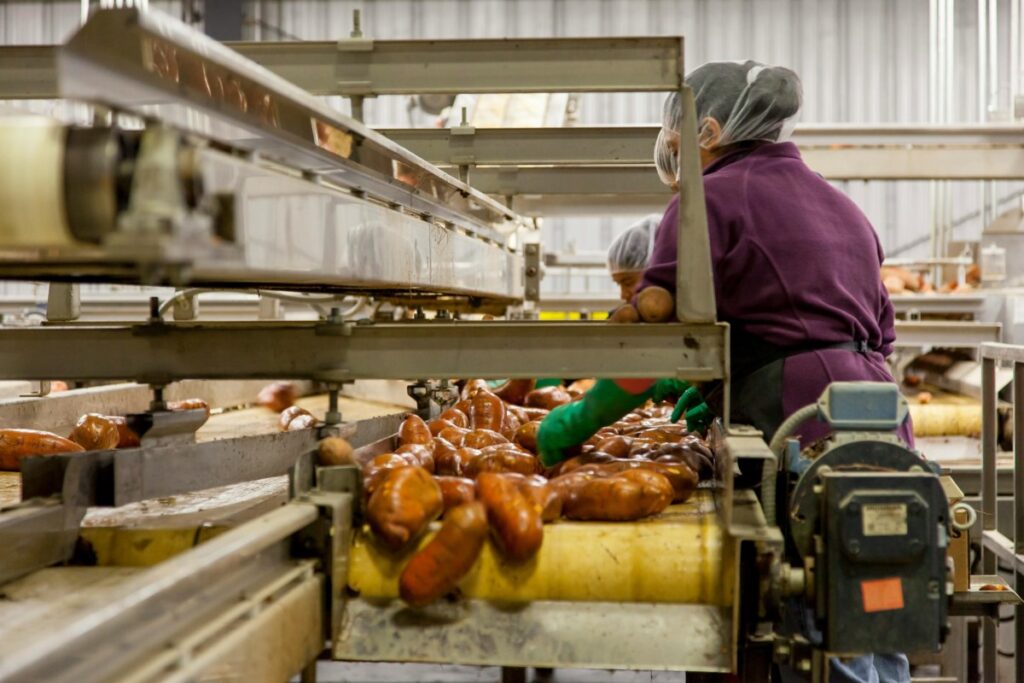Rising costs and a lack of infrastructure have pushed food processors on the West Coast into a crisis.
The BC government is unaware of the crisis in the food processing sector because it simply chooses not to acknowledge it. The province's food and beverage industry is at a critical crossroads, facing significant challenges that hinder its competitiveness and threaten its long-term sustainability. According to the BC Food and Beverage Agency's recent 2024 State of the Industry Report, the industry is grappling with rising costs, declining profit margins and inadequate infrastructure. These issues require immediate attention and strategic intervention to ensure the industry can continue to thrive and contribute significantly to the provincial economy.
British Columbia's food and beverage sector is a significant economic driver, generating $14.2 billion in annual revenue and employing more than 39,000 people across the province. Food processing is a critical link in the food supply chain, connecting farmers with markets and consumers.
However, a confluence of factors has hampered industry growth and profitability. The report emphasizes that revenue increases in recent years have come primarily from expansion and new product introductions, not from forced price increases by grocery retailers. Simply put, food processors are more subject to supply chain “bullying” by grocers than ever before. The inability to adjust prices in line with rising costs has hurt gross margins, especially for small and medium-sized businesses, making them more rapidly profitable than larger manufacturers. Small processors, including many family-owned businesses, are finding themselves financially strapped.
Key challenges identified include rising raw material, labour and transport costs, exacerbated by the inability to pass on these costs to retailers. Small manufacturers are disproportionately affected due to their limited bargaining and financial power. The report reveals that small and medium-sized manufacturers have negative margins, in contrast to modest margins for retailers. This discrepancy highlights the urgent need for measures to help these manufacturers stay in business and competitive.
One of the most pressing issues is a shortage of affordable and suitable manufacturing space and land. Greater Vancouver, a hub for food and beverage manufacturing, is experiencing a severe shortage of industrial land, driving up costs and forcing some manufacturers to relocate to Alberta and Washington state. This trend not only threatens the local economy, but also exacerbates food insecurity by disrupting supply chains. Seeing food processors leave the province and abroad makes British Columbia's food supply chain even more vulnerable.
Think of the food economy as a large, thriving tree with a strong trunk and a lush canopy. The tree represents the visible aspects of the economy: businesses, products, jobs, and economic growth. The roots are to the tree and food processing is to the agri-food economy. The roots are hidden but are essential to the tree's survival and growth. Food processors work out of sight but are vital to the health, growth, and stability of the food economy.
The report offers several recommendations. First, it is critical for the industry to develop a comprehensive competitiveness strategy. This strategy should include an inventory classification of agricultural land reservations, identify areas that can be reclassified for manufacturing use, and provide incentives for landowners to prioritize food and beverage manufacturing. This is the report's most important recommendation. Additionally, increased funding for infrastructure upgrades and manufacturing technology is essential for manufacturers to control costs and improve efficiencies.
Addressing labour shortages and upskilling the workforce are also key areas. State governments should develop targeted funding programs to attract, retain and upskill the workforce, especially skilled workers.
Additionally, the imbalance between grocery retailers and food manufacturers needs to be remedied. Insisting on the implementation of the Grocery Code of Conduct and supporting the Competition Bureau's recommendations to increase grocery competition are important steps to ensure fairer pricing practices.
British Columbia's food and beverage industry is at a crossroads, and decisions made today will shape the industry's future. Addressing the challenges identified through strategic investments and supportive policies can help the industry overcome current obstacles, become more competitive, and remain a vital contributor to British Columbia's economy. But if the province continues to ignore these issues, the foundations that support the agri-food sector are at risk of crumbling.
Sylvain Charbois is director of the Agri-Food Analytical Laboratory at Dalhousie University.



